For more than 55 years, former Capt. Larry Taylor has thought about one night in June 1968.
On that moonless night, Taylor repeatedly flew his AH-1 Cobra gunship under heavy enemy fire to save the lives of four fellow soldiers trapped on the ground in Vietnam, surrounded by nearly 100 enemy fighters.
“I’ve thought long and hard about that night, over and over,” Taylor said. “I don’t know what we could’ve done to make it any better, but we didn’t lose a man. Everybody we came with went home with us.”
On Sept. 5, Taylor finally received the honor he was due for his actions on that night more than five decades ago. In a White House ceremony, in front of family and friends, including the lone surviving member of the team he rescued, the now 81-year-old Taylor received the Medal of Honor from President Joe Biden.
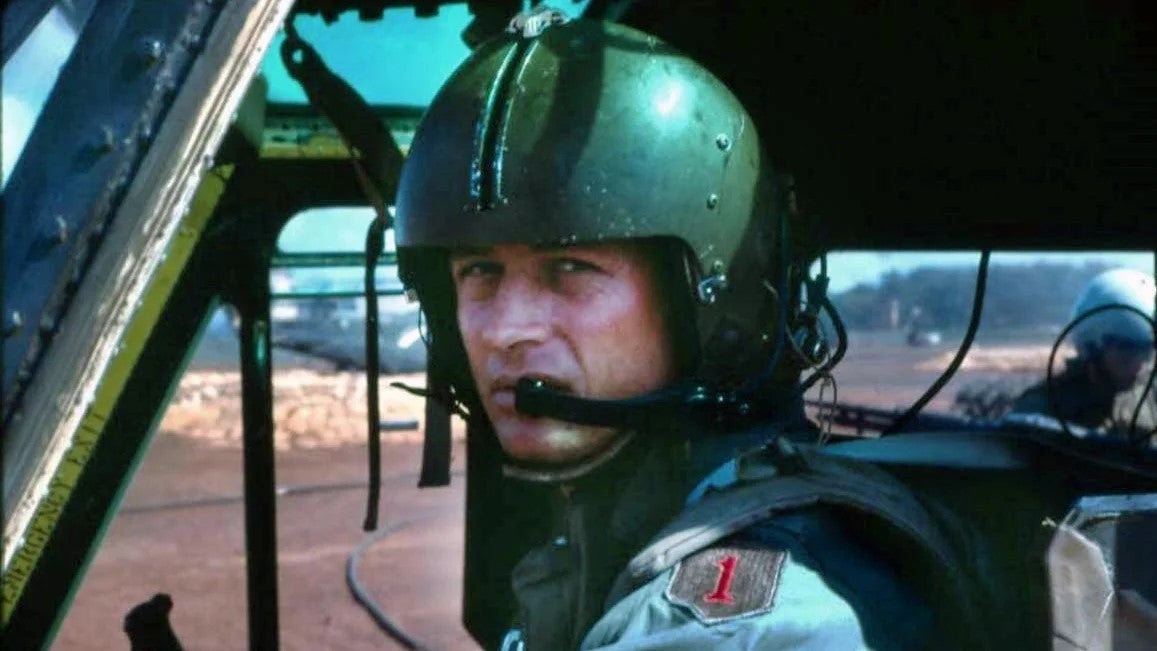
Taylor “refused to give up, refused to leave a fellow American behind, refused to put his own life above the lives of others in need,” Biden said during the ceremony.
“When duty called, Larry did everything to answer, and because of that, he rewrote the fate of four families for generations to come,” Biden said. “That’s valor. That’s our nation at our very best.”
Then-Sgt. David Hill was one of the men Taylor saved. “Hell, we were dead,” Hill said in late August, according to Stars and Stripes. “The fortunes of war had turned against us that night.”
Hill and his teammates were out of ammunition. “We had our Ka-Bar knives, and that was it,” he said during a Sept. 6 ceremony inducting Taylor into the Pentagon’s Hall of Heroes.
Taylor knew the team was doomed if he left the fight, Hill said. “For Larry Taylor, there was no confusion. No lack of clarity of what he needed to do,” Hill said.
To Hill, Taylor’s actions were worthy of the nation’s highest award for valor. “Larry not only did his job. He went way, way above the call of duty,” Hill said, according to Stars and Stripes. Hill, the only surviving member of the four-man reconnaissance team, spent more than seven years trying to get Taylor’s Silver Star upgraded.
“It should have happened 55 years ago,” Hill said, adding that he kept pushing because Taylor “didn’t give up on us.”
“I ask only that you, as an American, particularly you as a troop commander or as a business leader, tell Capt. Taylor’s story in order to inspire your men, your employees, your subordinates,” Hill said at the Pentagon Hall of Heroes ceremony. “Capt. Larry L. Taylor’s story will never end so long as we repeat it.”
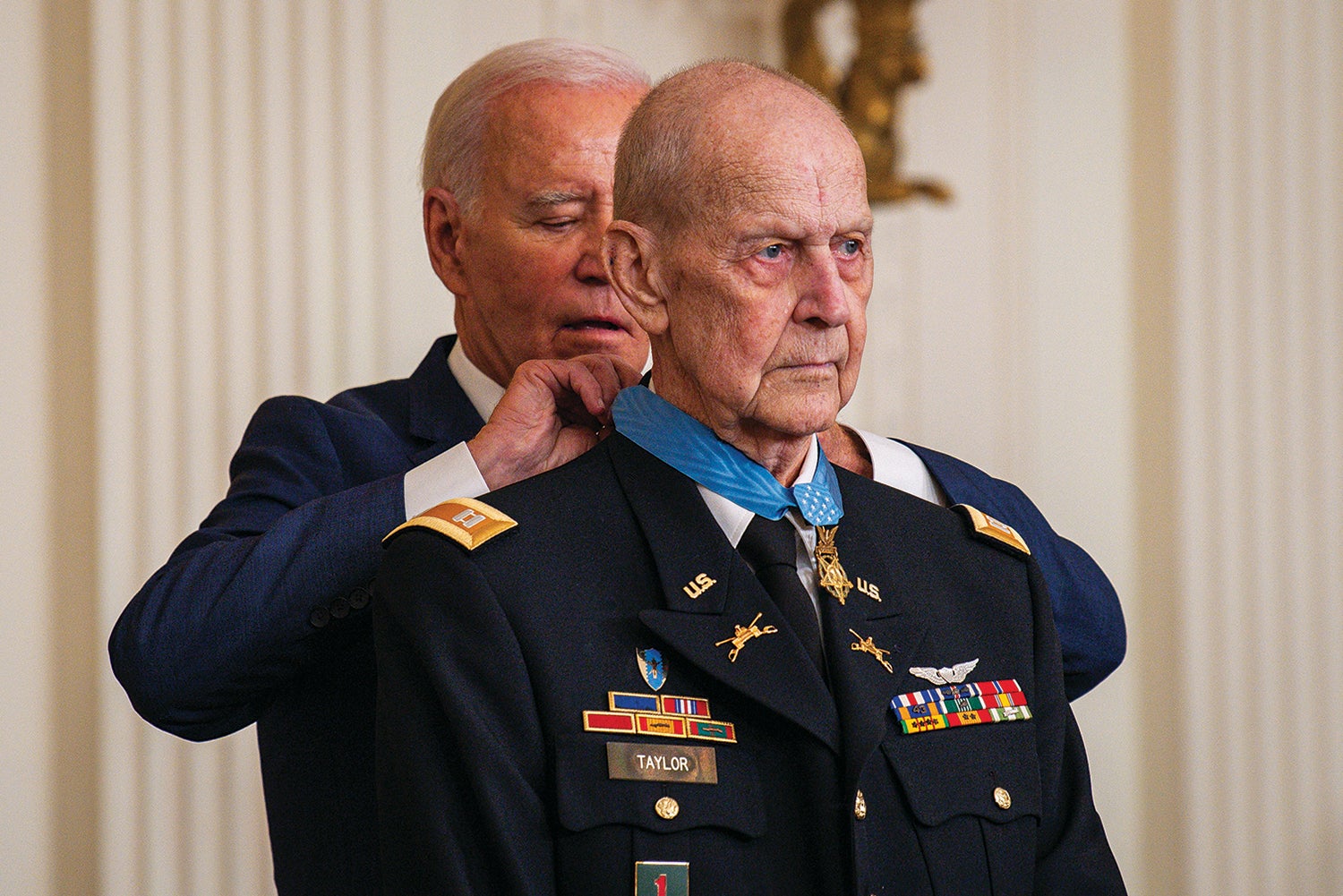
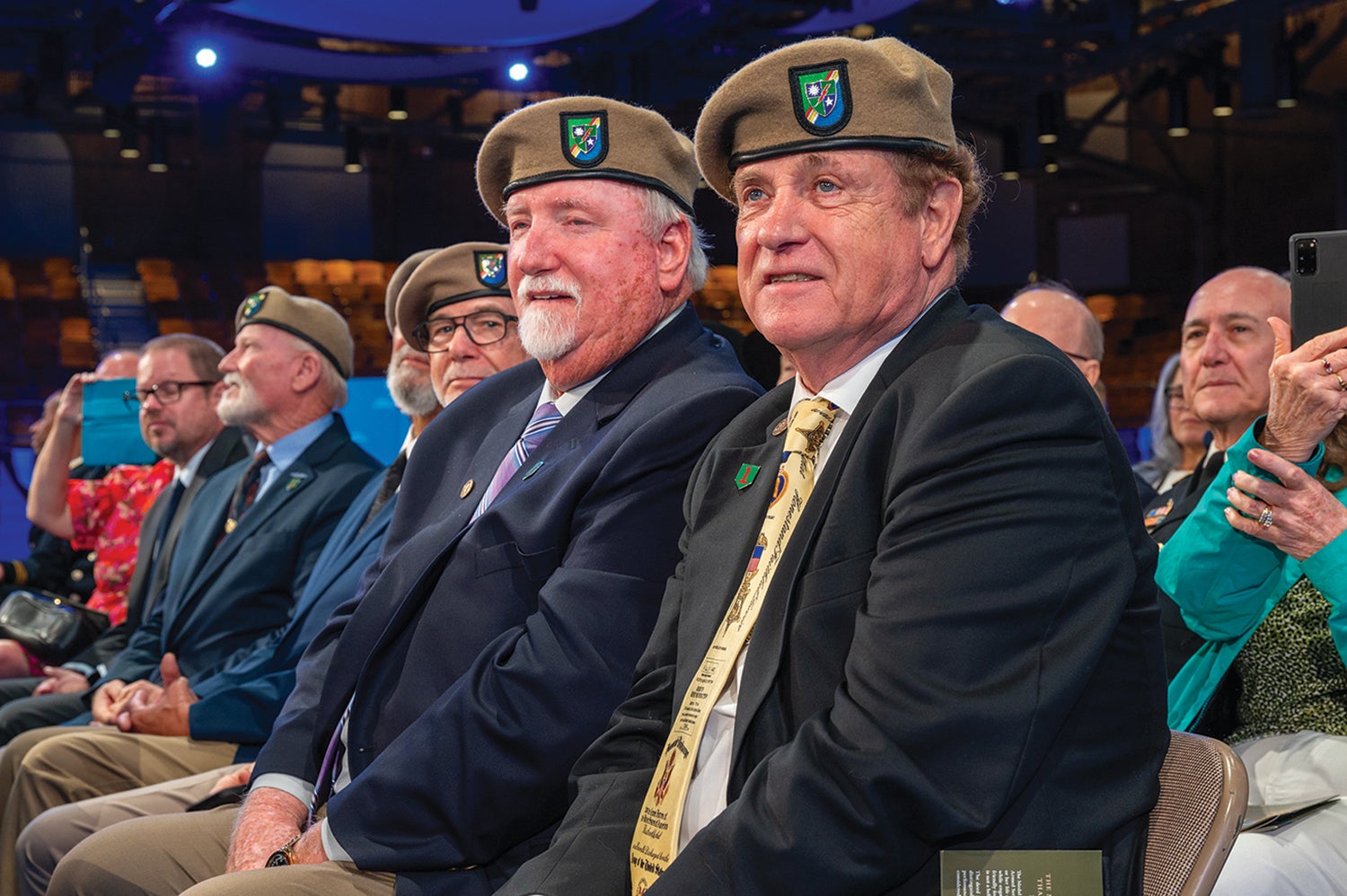
Soldiers Trapped
On June 18, 1968, Taylor, a native of Chattanooga, Tennessee, was a first lieutenant and a team leader of a helicopter light-fire team with D Troop (Air), 1st Squadron, 4th Cavalry, 1st Infantry Division. The soldiers were deployed to support a four-man long-range reconnaissance patrol team near the hamlet of Ap Go Cong, Vietnam.
“It was pitch-black, no moon, no stars, no light beyond the glow of Lt. Taylor’s cockpit controls, when he heard a whisper come in through his radio, ‘We’re surrounded,’ ” Biden said.
The four-man team had set out earlier in the day on a reconnaissance mission, but “in the dark, the men found themselves in the middle of a Viet Cong stronghold. Nearly 100 enemy soldiers now encircled their unit,” Biden said.
Taylor and his wingman raced toward the team. The soldiers were trapped “in the middle of a rice paddy larger than a football stadium, surrounded by a reinforced company of North Vietnamese,” Taylor told Freedom Sings USA, a Chattanooga-based nonprofit that pairs professional songwriters with veterans, service members and their families to help tell their stories through song.
Because it was so dark, Taylor radioed the patrol team and asked the soldiers to mark their location with flares, Biden said. “The flare went up, and the fight was on,” Biden said. Enemy fire lit up the night, and the Cobras flew “dangerously low” for more than half an hour, he said.

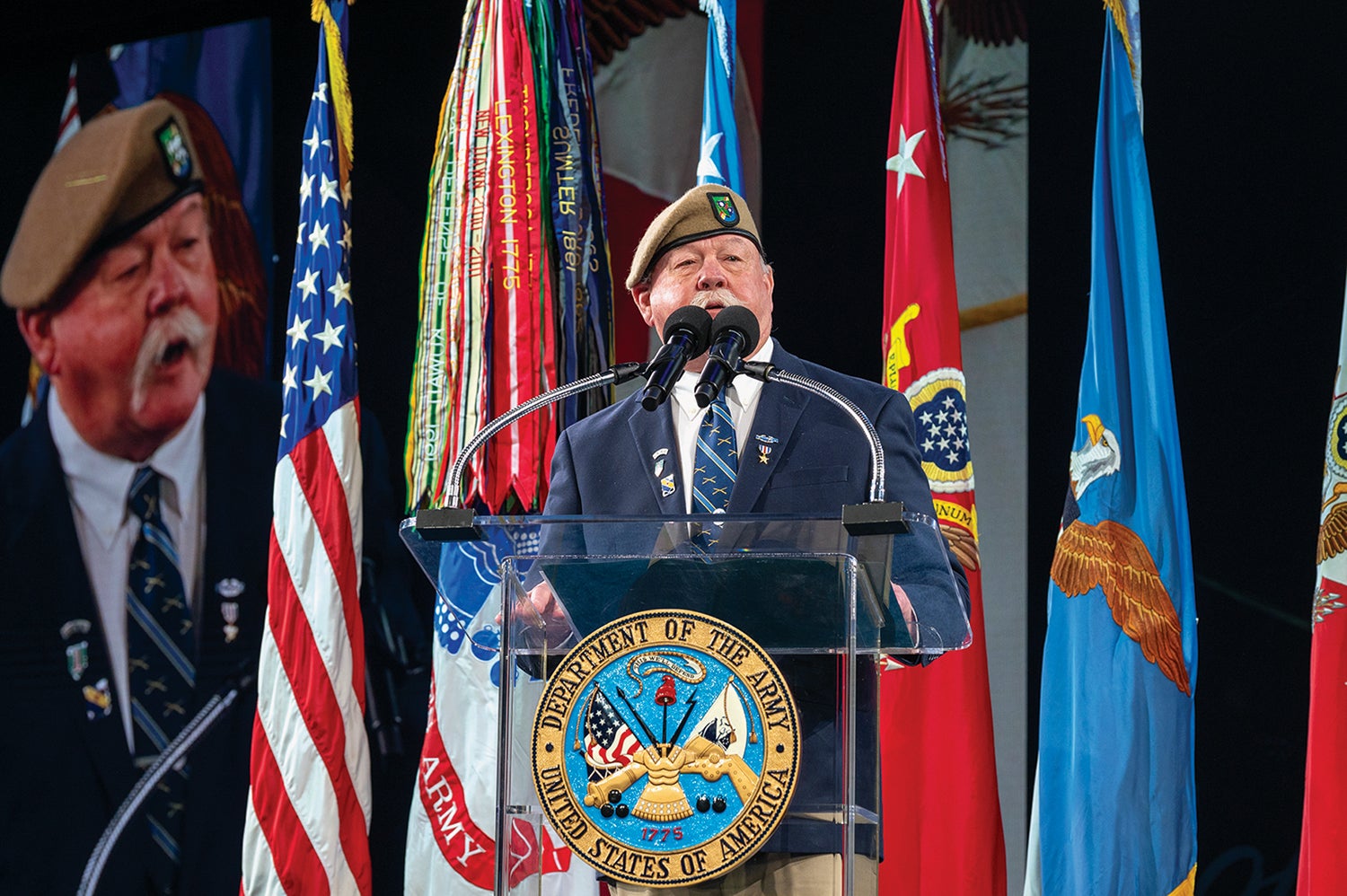
Taking Fire
Using the illumination as a reference point, Taylor and his wingman strafed the enemy with miniguns and aerial rockets, “firing thousands of rounds of rockets,” Biden said.
“Then Lt. Taylor heard a sound that only meant one thing—his helo was hit,” Biden said. “And then it was hit again and again and again.”
Taylor recounted the sound to Freedom Sings. “I heard the plink of enemy bullets as they found their mark on my Cobra and returned in kind,” he said. “No one shot at me twice. No one ever shot at a Cobra twice. Miniguns ripped the air with a stream of lead and rockets smashed the ground with explosive death, but the enemy refused to surrender with their prey so close.”
At that point, Army regulations said he could have left the fight, Biden said. “But Lt. Taylor had his own sacred standard. You never leave a man on the ground,” he said.
With both helicopters nearly out of ammunition and the enemy still closing in, Taylor learned that a plan to rescue the soldiers with a UH-1 “Huey” helicopter had been canceled because it was deemed too dangerous.
Taylor then received a direct order: “Return to base,” Biden said. “His response was just as direct. ‘I’m getting my men out.’ ”
“Running low on fuel, with the patrol team nearly out of ammunition, Taylor decided to extract the team using his two-man Cobra helicopter, a feat that had never been accomplished or even attempted,” according to the White House.
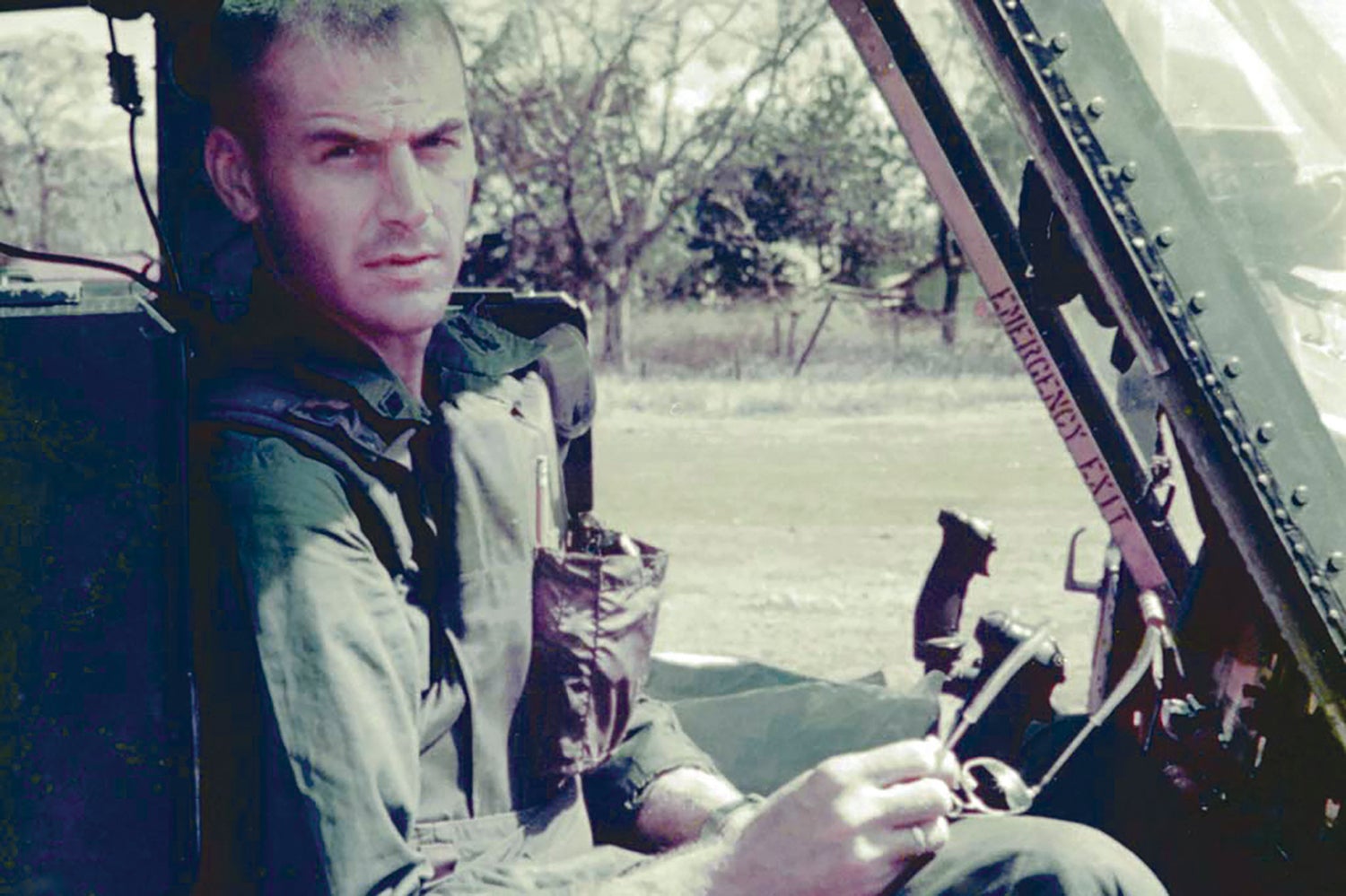
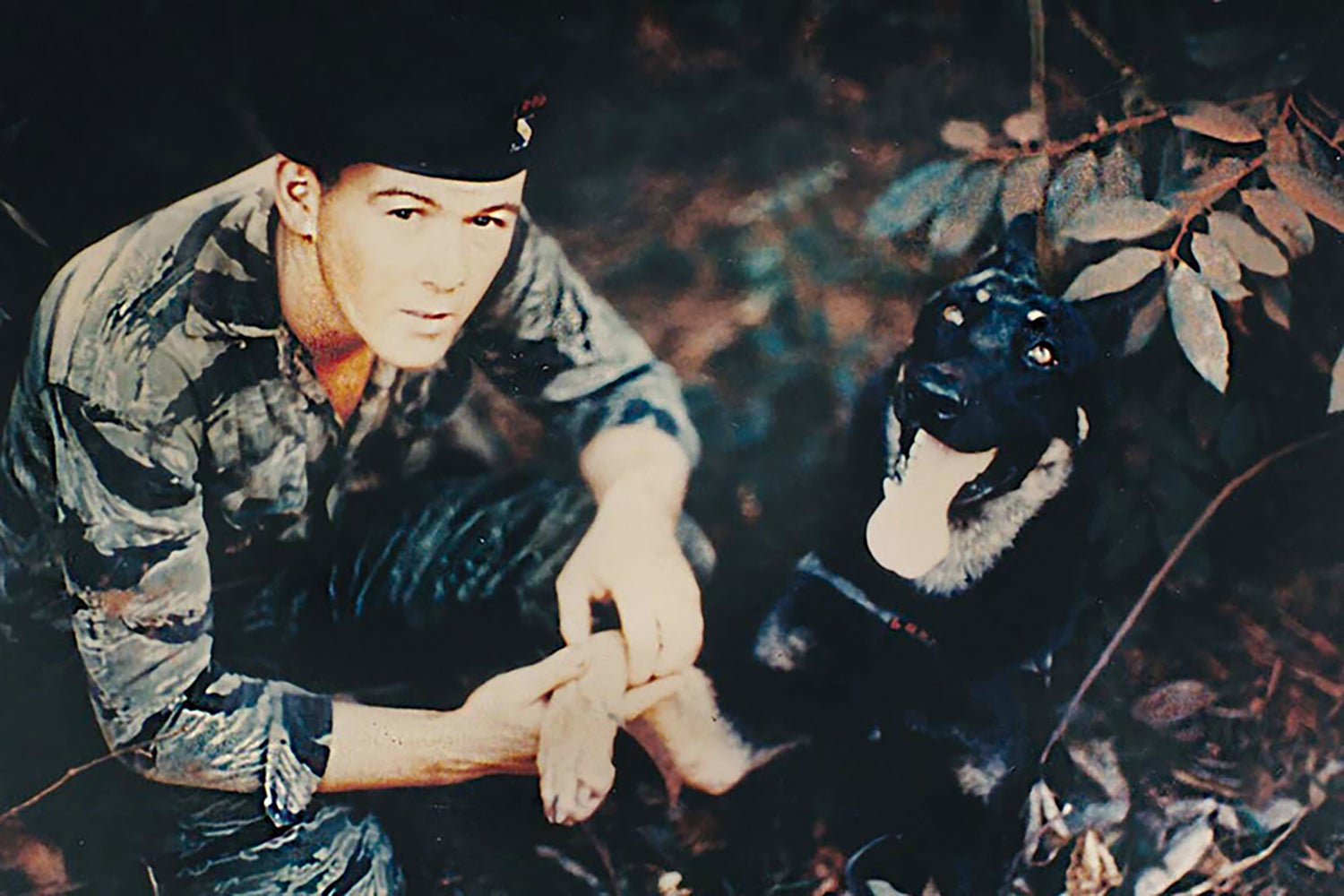
Desperate Measures
Taylor directed his wingman to fire his remaining minigun rounds along the eastern flank of the patrol team and return to base camp. Taylor then fired his own minigun along the team’s western flank, using his Cobra’s landing lights to draw the enemy’s attention while the patrol team moved to a nearby extraction point.
“There, still under heavy gunfire, Lt. Taylor landed,” Biden said. “The men mounted the exterior of his helo, clinging to the skids, climbing on the rocket pods.”
Within seconds, Taylor was back in the air. But the mission wasn’t over, Biden said.
Dangerously low on fuel, and with four men caked in wet mud clinging to his helicopter against 50-knot winds, Taylor found a friendly area to land. “The four men dismounted the helo and disappeared back into the pitch-black night,” Biden said. “No moon. No stars. No light beyond the glow of their faces when they briefly turned and saluted Lt. Taylor for saving all four of their lives.”
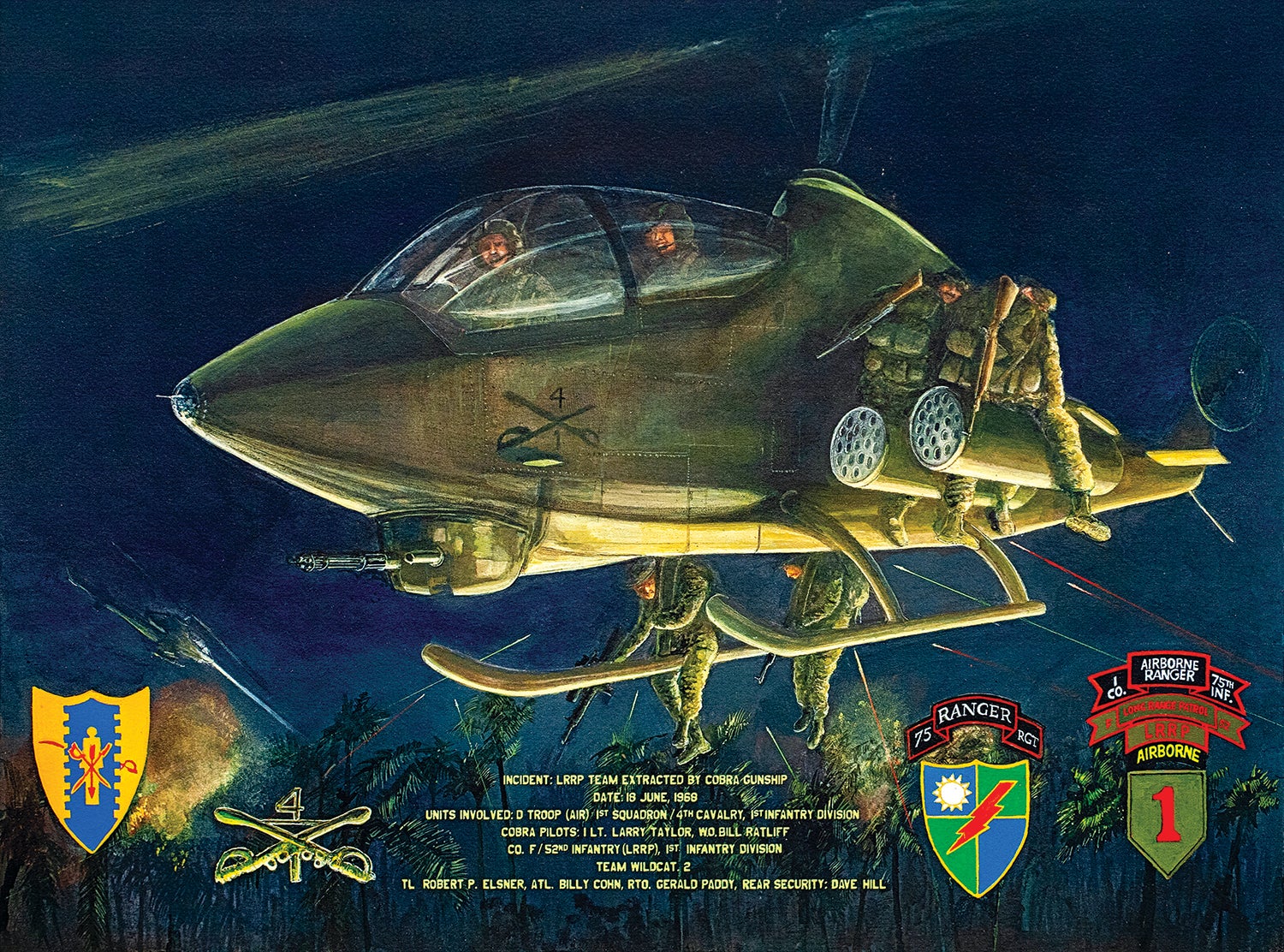
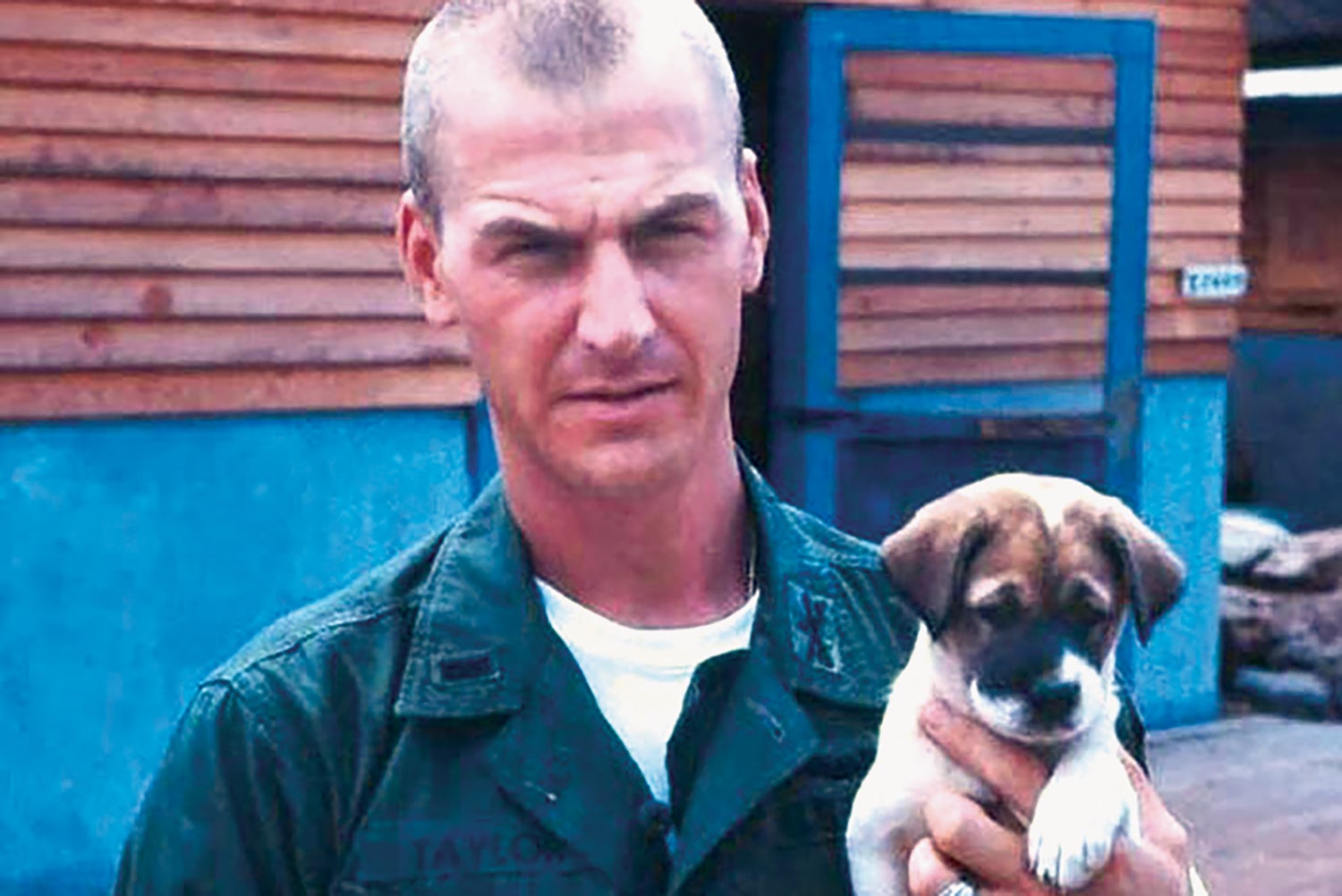
Taylor wouldn’t see some of those men again until Army reunions some 30 years later, Biden said. “By that time, Lt. Taylor had long become Capt. Taylor. He had flown more than 2,000 combat missions, and he had received a Silver Star, a Bronze Star, two Distinguished Flying Crosses and 43 Air Medals.”
But for Taylor, the greatest honor at those reunions was meeting the family members of the men he’d saved, Biden said. “They’d look for Larry. They’d hug him. They would say, ‘You don’t know me, but you saved my daddy’s life,’ ” Biden said.
When Biden called Taylor this past summer to tell him he would be receiving the Medal of Honor, the former captain had a simple response. “His response was, ‘I thought you had to do something to receive the Medal of Honor,’ ” Biden said. “Well, Larry, you sure as hell did something. If you ask anyone here, I’m pretty sure they’d say you did something extraordinary.”

’Great Honor’
A graduate of the University of Tennessee, Taylor was commissioned in 1966. He qualified as an Army aviator a year later, serving in Vietnam as a helicopter pilot from August 1967 to August 1968, according to the White House.
Receiving the Medal of Honor is a “great honor,” Taylor said during the Sept. 6 Hall of Heroes ceremony. “People ask me about that night. ‘What possessed you to do that?’ Well, it needed doing,” Taylor said. “Then they’ll say, ‘You’re insane, aren’t you?’ I’d say, ‘Well, Cobra pilots are a little weird anyway.’ ”
He always knew he wanted to serve in the military, Taylor told Freedom Sings. “My granddaddy fought in the Civil War, my great-uncle in World War I and my dad and uncles in World War II,” Taylor told Freedom Sings. “I didn’t have to be drafted to fight in Vietnam. It was the honor of my life.”

